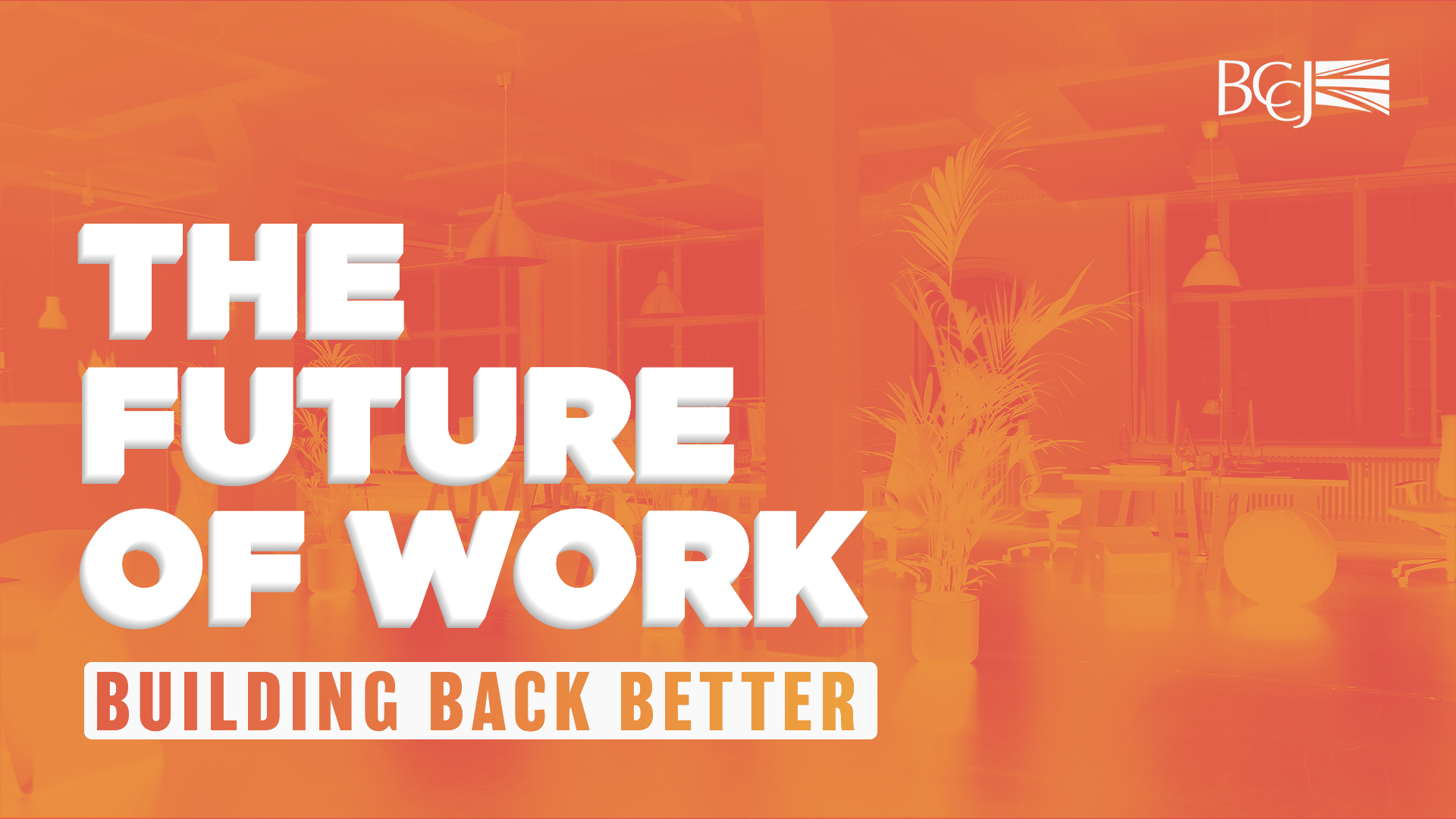Member? Please login
Future of Work – Building Back Better
- The Future of Recruitment
- Mental Health and Well-being
- Post-Covid Boards
- Reskilling (coming soon)
This page has taken over from the BCCJ’s Covid-19 Resource Centre. You can still access this page HERE
The pandemic has triggered seismic shifts in how we work, causing many companies to transition from an office-centric culture to more flexible ways of working. This shift is largely still in the experimental phase, as businesses try to conceive of and test effective post-pandemic working models for their operations and staff.
Many companies and individuals are now thinking about the future of work post Covid-19. How will jobs be affected? What different skills will be needed in the future? How can companies and individuals best prepare? One outcome seems highly likely: there will be more disruptions and a greater need for reskilling than there was before Covid-19. It has been predicted by the 2021 McKinsey report that 17 million workers in the US will need to change not just employers, but completely change occupations by 2030, a figure which will translate similarly in Japan.
This is in large part due to a new generation of workers in the making. Unlike any cohort before them, we now have a digital native generation and one whose formative years have been defined by the pandemic. And if these challenging two years have taught us anything, it is surely that working models are no longer fit for the 21st century.
This page will share what BCCJ members and partners are doing as we look to re-shape our workplaces and workforces. If you would like your voice heard and contribute to the BCCJ’s Future of Work initiative, contact us at [email protected]

The Future of Recruitment with Robert Walters Japan
Recruiting activities in Japan have transformed due to the coronavirus pandemic. Organisations have been forced to digitize as common practices such as interviews and meetings have become increasingly conducted from remote locations. Meanwhile, HR professionals have been forced to re-examine their talent acquisition strategies, resources and technology. It is widely believed that there is no turning back and we should expect these changes to stick around long after the threat of COVID diminishes.
In this video, Sarah Backley of the BCCJ team talks with Jeremy Sampson, Managing Director of Robert Walters Japan on what we can expect in the hiring landscape in Japan in 2021 and beyond.

Mental Health and Wellbeing
The British Chamber of Commerce in Japan launched its new event series, Future of Work: Building Back Better, with a webinar about the pandemic and mental health, on June 29. The expert panellists explored how and why Covid-19 continues to impact everyone’s wellbeing and what can be done to foster healthier, happier people and workplaces in the post-pandemic era.
Vickie Skorji, director of TELL Lifeline, began by exploring the mental health landscape before the outbreak of the novel coronavirus. Globally, one in five employed people had a mental health issue. In Japan, 61% of workers reported experiencing “strong feelings” of anxiety and stress at work in 2015, according to the Ministry of Health, Labour and Welfare. However, in research conducted by the London School of Economics, staff in Japan said they were less likely to tell their employer about their mental health issues for fear of losing their job. In short, explained Skorji, before the pandemic there were serious shortcomings in addressing mental health, as well as an increasing number of people experiencing mental health issues. Read the full article HERE
Post-Covid Boards
Post-Covid boards was the theme of the British Chamber of Commerce in Japan’s second webinar of its new series, Future of Work: Building Back Better. Held on July 28, the event was supported by the Financial Times Board Director Programme, which helps aspiring and existing board members to accelerate their board careers and develop board-level skills. The panellists discussed how corporate boards have responded to the challenges of the pandemic and drew on their experience in Japan and globally to offer insights on board operations as the world emerges from Covid-19.
Diana Wu David, founder of Future Proof Lab, kicked off the session by asking the panellists to consider what is happening on boards now. Leo Lewis, Asia business editor at the Financial Times, said the finalization of the country’s Stewardship Code (second revised version) in March 2020 has put more pressure on shareholders to hold companies and boards to account. IR departments, he added, are playing a greater role in conveying shareholders’ thoughts to management and boards, while also communicating problems that arise. Read more HERE




